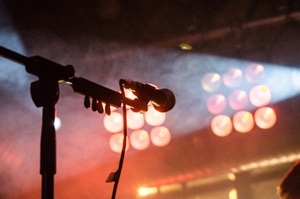Kammermusik: Onslow und Dvořák mit dem fabergé-quintett
In the organizer's words:
Chamber music at the RLS: Onslow and Dvořák with the fabergé quintet
The fabergé quintet - consisting of current and former members of the NDR Elbphilharmonie Orchestra - opens the concert with string quintets by Dvořák and Onslow.
More bass
Fullness, density, basis - that's what the double bass stands for. The wooden giant lends not only the great symphonic works but also chamber music a tonal softness and depth that surrounds and complements the sound of its higher siblings.
More depth
In order to give his composition an additional bass foundation, Antonín Dvořák wrote a part for double bass in his String Quintet No. 2 in G major instead of a second cello or viola part. In this way, he also achieved a symphonic string sound in the solo line-up. He originally composed five movements, one of which he later removed and arranged for string orchestra as "Notturno in B major op. 40". The work, which was awarded a composition prize, and in particular its scherzo, are reminiscent of Czech folk music and are reminiscent of Dvořák's homeland.
More drama
Pathetic, sustained sounds push forward - and end in dance-like, sometimes almost jazzy rhythms. George Onslow's String Quintet in C minor shows the "élan-terrible" of the age of the French Revolution. The son of an English father and a French mother became one of the most important chamber music composers of the first half of the 19th century. After being hit in the ear by a bullet in a hunting accident, he became almost completely deaf - and was subsequently often referred to as the "French Beethoven". Due to his immense success, he even became the second honorary member of the Philharmonic Society of London alongside Felix Mendelssohn Bartholdy in 1830. Beethoven and Schubert also praised his dramatic style, which he performs with transparency, elegance and ease in this quintet.
fabergé quintet:
Rodrigo Reichel violin
Silvia Offen violin
Torsten Frank viola
Sven Forsberg Violoncello
Peter Schmidtdouble bass
GEORGE ONSLOW
String Quintet No. 19 in C minor op. 44
ANTONÍN DVOŘÁK
String Quintet No. 2 in G major op. 77














